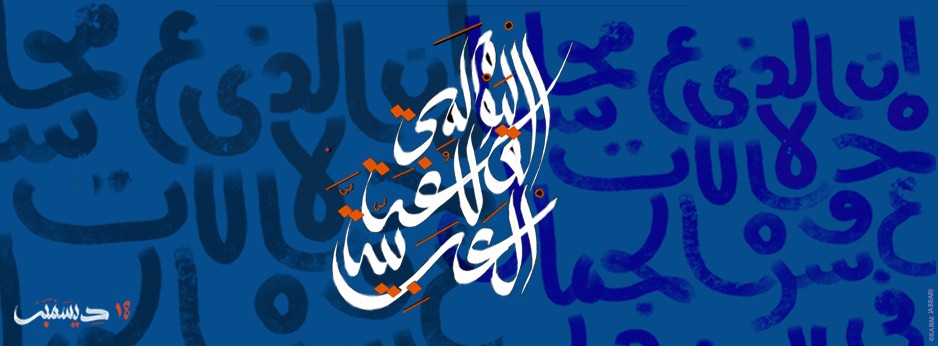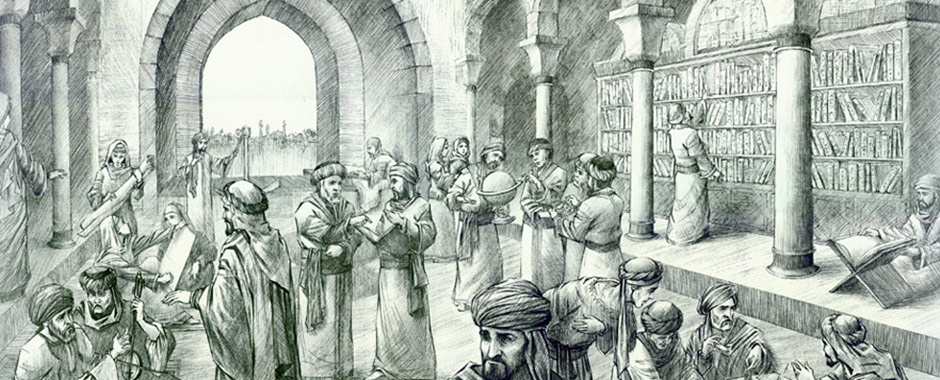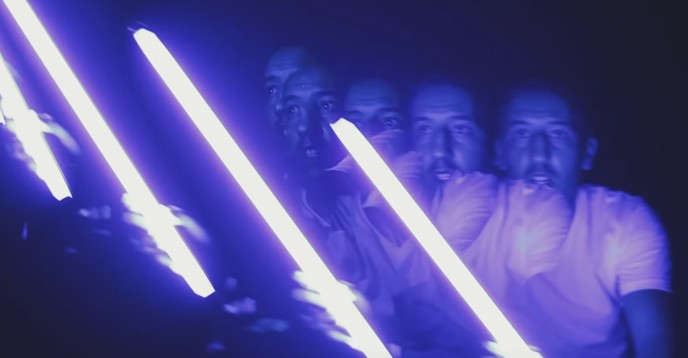World Arabic Language Day

The Arabic language is a pillar of the cultural diversity of humanity. It is one of the most widely spoken languages in the world, used daily by more than 290 million people. World Arabic Language Day is celebrated every year on 18 December since 2012. The date coincides with the day in 1973 that the General Assembly of the United Nations adopted Arabic as the sixth official language of the Organization.
In the diversity of its forms, classic or dialectal, from oral expression to poetic calligraphy, the Arabic language has given rise to a fascinating aesthetic, in fields as varied as architecture, poetry, philosophy and song. It gives access to an incredible variety of identities and beliefs and its history reveals the richness of its links with other languages. Arabic has played a catalytic role in knowledge, promoting the dissemination of Greek and Roman sciences and philosophies to Renaissance Europe. It has enabled a dialogue of cultures along the silk roads, from the coast of India to the Horn of Africa.
Arabic Language Academies: Necessity or Luxury? is the theme of World Arabic Language Day celebration in 2020.
Technological advancements and the extensive use of global languages such as English and French has resulted in numerous changes in the use of Arabic. Increasingly, these foreign languages replace the Arabic language in both daily communication and in the academic field.
In addition, Classical Arabic is being used less as more people are opting for the use of local Arabic dialectics. Due to this shift, there is a growing need to preserve Classical Arabic’s integrity by making it compliant with the demands of our changing language landscape today.
Through a virtual meeting with academics and professionals in Arabic language, UNESCO will initiate a global discussion to examine the role and the need of language academies as a space to safeguard and preserve the Arabic language.
By exploring these questions, World Arabic Language Day 2020 will provide an opportunity to reflect on and discuss how Language Academies can help revive and enhance the use of classical Arabic. The Day will also give an opportunity to showcase and celebrate the richness and global importance of the Arabic language worldwide.
The celebration is organized in cooperation with the Permanent Delegation of the Kingdom of Saudi Arabia and the Sultan Bin Abdulaziz Al-Saud Foundation.
Join the global conversation via #ArabicLanguageDay
MESSAGE FROM THE DIRECTOR-GENERAL
"While it poses its share of threats to multilingualism, artificial intelligence is also a formidable source of opportunities and promise. With the development of instantaneous translation tools, it could facilitate dialogue between peoples and cultures. With improved and personalized teaching, it could also greatly facilitate the learning of several languages and thus promote the development of the Arabic language."
— Message from Ms Audrey Azoulay, Director-General of UNESCO
Download the complete message in PDF format:
English | Français | Español | Русский | العربية | 中文
Bayt al-Hikmah - the House of Wisdom

Also known as the Grand Library of Baghdad, the House of Wisdom is often referred to a public academy and a learning institution. Founded in Baghdad by the the Abbassid ruler Harun al-Rashid in the late 8th century, Bayt al- Ḥikmah gained popularity under Caliph al-Ma’mun. It quickly became a main center of translations, study and transfer of knowledge. People from all over the Islamic world flocked to the House of Wisdom, speaking many languages and discussing on topics such as philosophy, literature, mathematics, medicine, astronomy and optics.
SOCIAL MEDIA
#ArabicLanguageDay
The poster for World Arabic Language Day is an artwork of the Tunisian calligrapher Karim Jabbari which illustrates the following piece of poetry
"He who imbued languages with the highest qualities
Bequeathed to Arabic the secret of beauty"
— Ahmed Chawqi
RESOURCES
-
"Chapter 1 : The Arabic language, its Linguistics and Philology", Vol V Culture and Learning in Islam, in The Different Aspects of Islamic Culture
-
"The Internet and Language Use : A Case Study in the United Arab Emirates", International Journal on Multicultural Societies, 2004
-
"Islam's Writing on the wall ; the stylish marriage of Arabic calligraphy and architecture", The UNESCO Courier, 1977
- Resolution adopted by the Executive Board
- Explanatory note of the Executive Board (2012) concerning the proposed World Arabic Language Day
- Address by Mr Koïchiro Matsuura, former UNESCO Director-General, on the occasion of the Ceremony on the contribution of Saudi Arabia to improve the presence of the Arabic language in UNESCO, 2007
- All Commemorations
- Previous commemorations: 2017 - 2016







